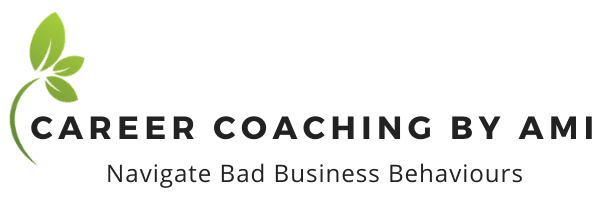How Sincere Are Your Thank-You’s?
Most human beings just want to belong, feel appreciated, and valued. And sometimes a simple, real, and heartfelt ‘thank-you’ is all it takes to brighten someone’s day.
Giving is rewarding to me. I love showing appreciation because it makes me feel good. I like to recognize others, and I hope that it brings some joy to a person’s day. I especially enjoy handwriting notes from my stationary collection. It makes me happy that someone who has impacted my life will receive an unexpected surprise in their mailbox. Sometimes I’ll attach something small on the note like a tea bag, a fun sticker or a goofy looking paperclip.
Think about the last time you received a physical thank-you note. You may have felt: appreciated, warm, valued, successful, satisfied, motivated, empowered, or accomplished.
Research shows that Canadian companies continue to struggle with employee engagement. I often hear from leaders that ‘I don’t have the budget to take my employees out to lunch’ or ‘we’ve got to be fiscally responsible – there’s no way we can give the team gifts after this project’.
It doesn’t cost you anything to simply say thank-you to someone.
Take a step back and recount the number of times you actually said thank-you and emailed someone a sentence for a job well done. I truly believe how we treat each other on a daily basis leaves a much larger impression on that individual than any material object or event. If you’re a manager you need to know each of your staff very well and know your own style of giving and receiving. If you’re an employee you need to be aware of how you like your contributions to be recognized and observe your peers and manager’s style of giving and receiving.
I worked with a leader who managed over 200 staff. She was known to recognize and thank her staff on a regular basis each time she walked the shop floor. Her genuine care for her employees was reciprocated with priceless suggestions from her staff about how to improve the efficiency of the company’s operations. I believe that many people appreciate the small and consistent gestures rather than a one-time event.
Usually gifts and meals mean very little if your actions are not aligned with your daily behaviour or what you say. For example, I recall a manager who would chastise me about my work in one-on-one meetings with her and then in front of stakeholders she would shower me with accolades while taking credit for my performance. Many employees can see through whether a manager is really true to their word or if it’s just a show.
I value simple, genuine, observable and constructive feedback. For example, ‘you addressed those tough questions well with the clients’ or ‘well done, that email was concise – good use of bullets’.
Over the years, I’ve learned that being grateful for my life experiences need to be balanced. It’s easy to thank those who I have truly appreciated. However, I find that a lot of insightful learning comes from thanking those who have wronged me in the past. This is difficult and deep work that I truly believe needs to occur in order for me to let go and move forward – or at least recognize the emotions that are still embedded deep within me. Being grateful for all my experiences, good or bad, have taught me resilience and propelled me in directions that I would never have imagined.
Some ways to thank someone:
Jot down a list of everyone you want to send a note to.
Write and send thank-you notes to a few people and send via regular mail. [Yes…I actually put a stamp on it and walk to a red mailbox in my neighbourhood.]
Type a few emails or text messages to those on your list and send them out.
Call and connect with a few people or leave a message to say thank-you.
Write down thank-you notes to those who have impacted you negatively. Jot down one lesson you learned. For example, ‘next time in a similar situation I will ask for help sooner’. This note is not meant to be sent. I do encourage you to identify one positive thing that you learned about the situation or from that individual or from yourself.
When I resigned from an organization a few years ago, I recall receiving an email from my colleague expressing her appreciation for a note I sent to her 4 years ago about her father’s passing. This example illustrates the power of a simple thank-you and how timeless this method of appreciation can be.
I like to write thank-you notes, but maybe another gesture fits with your style. Take the person out to coffee, arrange a 5-minute video chat with them, or send them their favourite food!
ACTION: Find your giving and receiving style. Determine why you want to do it first so there’s meaning for you and the recipient. Then: 1) send a thank-you to someone, and 2) reflect on what you’ve learned from someone who has impacted you negatively to further your personal growth.
